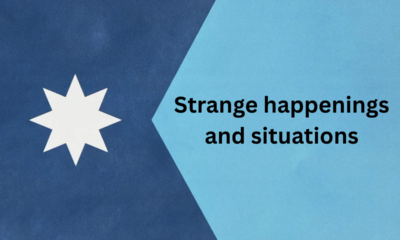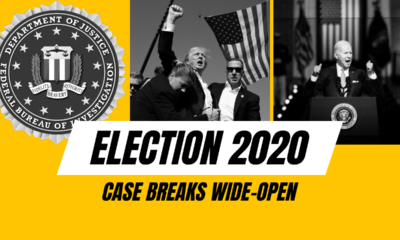Civilization
Turn the Spotlight on China’s Season of Dark Memories
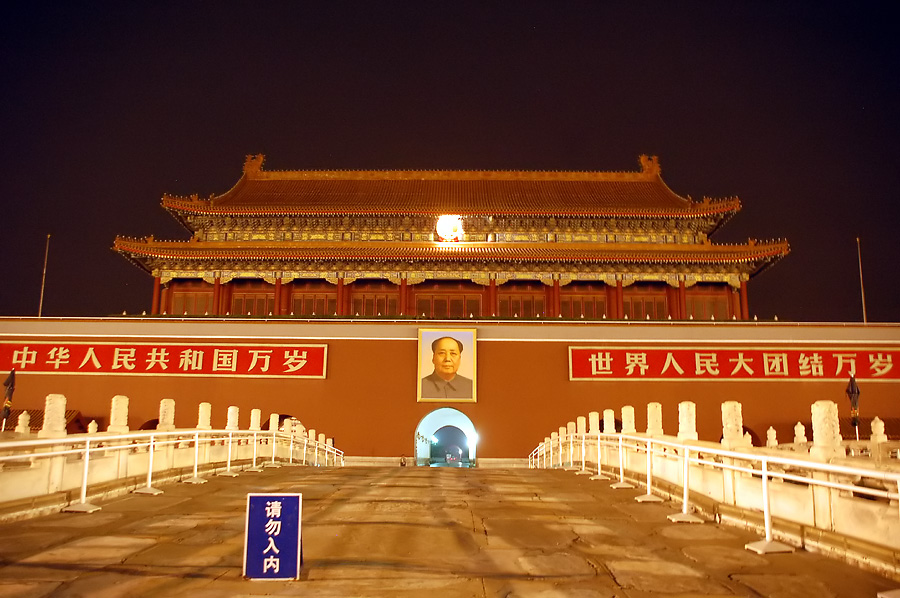
Summer in China evokes dark memories of past Chinese Communist Party crackdowns. This June and July, millions of Chinese who lived through these traumatic events can only commemorate them in secrecy. China’s government crushes any public observances that challenge official narratives of the party’s rule. The United States should not let China’s communist leadership get away with its coverup.
China summer begins at Tiananmen Square, 35 years later
The season began on June 4 with the 35th anniversary of the Tiananmen Square protest, widely known by the iconic photo of a young man standing his ground before a military tank. The People’s Liberation Army killed at least 10,000 pro-democracy demonstrators then, according to declassified British documents. Thousands more were imprisoned. The Western NGO, Chinese Human Rights Defenders, documents 27 democracy advocates currently jailed over Tiananmen, many for simply “sustaining its memory.”
Hong Kong’s Cardinal Stephen Chow, a successor of the famously outspoken Cardinal Zen, recently wrote his reflections on the massacre that were equally a testament to Beijing’s current repression of Hong Kong. He didn’t dare utter the words “Tiananmen” or “massacre,” but, in a contortion of self-censorship, spoke instead of the “life-sapping event that took place 35 years ago in the capital city.” The cardinal counseled those stuck “in a dark space” to “proactively forgive” “whomever and whatever” and “move on” for a “brighter future for all.” Since 2022, Hong Kong’s annual prayer vigils commemorating Tiananmen have stopped under pressure.
The Hong Kong extradition bill
Five years ago, in June, China attempted to establish control over Hong Kong with an extradition bill. It was defeated on June 19, 2019, after one million protestors took to the streets. But on June 30, 2020, Beijing suppressed Hong Kong’s freedom in a single stroke by imposing the National Security Law (NSL). The vaguely worded law, carrying penalties of life imprisonment, laid a death trap for the region’s separate democratic system, vibrant civic society, and rule of law. Jimmy Lai, the world-renowned free speech hero, has been on trial under this law for seven straight months. The U.S.-based Hong Kong Democracy Council reports that Hong Kong now has 1,819 political prisoners.
Then, on July 20, there’s the 25th anniversary of the crackdown on Falun Gong, the Chinese spiritual group that, by Beijing’s count, had 70 million practitioners. The regime ordered Falun Gong to be “eliminated,” labeling it an “evil cult.” Hundreds of thousands of practitioners were arrested and sent to labor camps, where many disappeared. Substantial evidence indicates that they were murdered under an acknowledged government policy to harvest prisoners’ organs for transplant. Hundreds of practitioners are reportedly now imprisoned for their beliefs, including Liu Jinping, arrested in 2021 and held and reportedly tortured in Heilongjiang Women’s Prison. Bitter Winter magazine documented two other Falun Gong women prisoners who died there this year.
China and its underground historians
In his new book, “Sparks,” Ian Johnson describes China’s underground historians, who bravely counter the “official” historical narratives that censor regime repression, no matter how catastrophic. Johnson, a Pulitzer Prize winner for his Wall Street Journal coverage of Falun Gong persecution, finds China “obsessed with controlling history” on behalf of its goal to “create a population that has internalized the party’s view” of it. Scores of millions of Chinese were killed under Mao’s campaigns, yet this is glossed over in official accounts. Beijing’s august Museum of Chinese History devotes merely three lines of text to the cultural revolution and says nothing about the Great Leap Forward’s “Great Famine,” Johnson notes.
The party also tries to control its narratives abroad. Chinese and Hong Kongers in the United States who dissent from party propaganda risk beatings, forced repatriation, and other CCP reprisals. The Justice Department brought charges in some such “transnational aggression” cases. Several concerned New York, where Beijing operated a secret police station, whose agents were directed to disrupt a lawful Falun Gong protest, and it infiltrated local police to better spy on Chinese on American soil. A 2023 case involved a failed “PRC Government-directed scheme” to bribe and manipulate an arm of the U.S. government, the IRS’s Whistleblower Program, to “strip the tax-exempt status of an entity run and maintained by Falun Gong practitioners.”
How they keep students at foreign universities under control
Some 300,000 Chinese students annually attending American colleges are kept under control, studies show, by CCP-linked Confucius Institutes, the Chinese International Education Foundation, the Chinese Students and Scholars Association(CSSA), and others. In a typical case, a Chinese student at Purdue University was harassed by other campus Chinese, and his family in China was threatened by secret police, after he posted a Tiananmen tribute in 2021. At this month’s hearing of the bipartisan Congressional-Executive Commission on China, a brave Chinese student at Columbia University disguised her identity while testifying. She described a fellow Chinese student being beaten unconscious at a campus vigil for China’s Uyghur victims and indicated that Columbia’s CSSA is concerning.
Indoctrination and coercion, a dissident historian told Johnson, leaves most Chinese “unaware of [the regime’s] endless cycles of violence” and knowing only what they personally experienced. They should know about the CCP’s horrific human rights record for the sake of justice, human dignity, and political reform.
Americans also need to know the unvarnished story of Chinese communism – from Mao’s disastrous campaigns to Xi Jinping’s coercive policy called “socialism with Chinese characteristics. A State Department brief on the CCP cover-up found: “Unchecked, the PRC’s efforts will reshape the global information landscape, creating biases and gaps that could even lead nations to make decisions that subordinate their economic and security interests to Beijing’s.” Congress recently took a step forward by banning TikTok. But much more is required.
Take it to the Chinese people
The next president – or a former president – should give a major public address to the Chinese people on the importance of our freedom and democracy and draw specific contrasts with Chinese Communist rule. American leaders routinely compare military and economic strengths but shy away from making moral judgments based on respect for rights and freedoms. Forty years ago, President Reagan addressed students at a Shanghai university about religious and other freedoms. He was then cautiously optimistic about China’s trajectory. An updated presidential-level address is long overdue.
This article was originally published by RealClearPolitics and made available via RealClearWire.
Nina Shea is a senior fellow of the Hudson Institute where she directs its Center for Religious Freedom. She is a former vice chair of the U.S. Commission on International Religious Freedom, to which she was appointed by House Republicans.
-
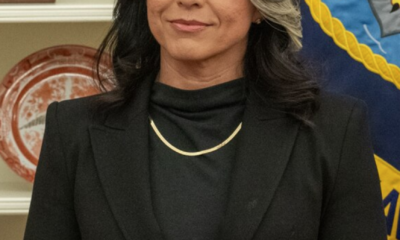
 Civilization5 days ago
Civilization5 days agoWhy Is Tulsi Gabbard in Georgia? Because Trump Sent Her There
-
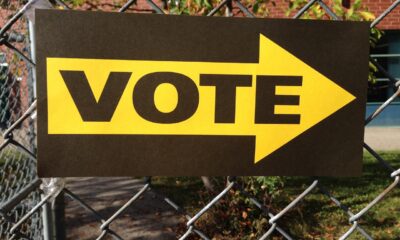
 Guest Columns5 days ago
Guest Columns5 days agoModeration Is the Most Disruptive Movement in American Politics
-

 Civilization4 days ago
Civilization4 days agoNot ‘Might Makes Right’ but ‘Might Should Serve Freedom’
-

 Civilization3 days ago
Civilization3 days agoThree Radical Ideas to Reform the Scientific Enterprise
-

 Education3 days ago
Education3 days agoWaste of the Day: Universities Pile Up Billions in Research Overhead Costs
-
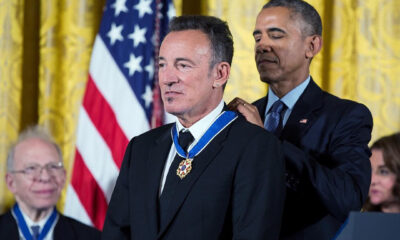
 Guest Columns3 days ago
Guest Columns3 days agoCan AI Write a Better Protest Song Than Bruce Springsteen?
-

 Executive2 days ago
Executive2 days agoWaste of the Day: L.A. Funds Activists, Then Group Sues
-

 Civilization4 days ago
Civilization4 days agoHow Democrats Have Mastered Modern Elections



